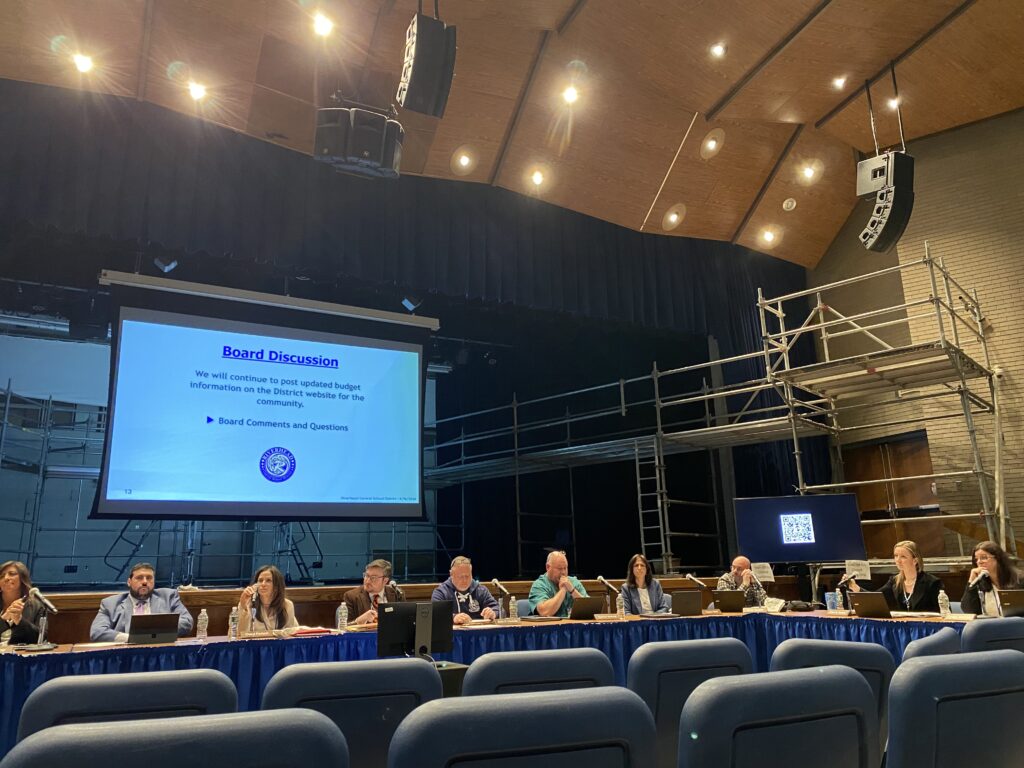Guest Spot: The change Riverhead government really needs

This newspaper recently endorsed two proposals intended to improve government in our town: term limits and a four-year supervisor tenure. I’m not writing to oppose, but rather to point out that if these are the answers, we’re asking the wrong questions.
Here’s what Riverhead voters really need to ask: How can we ensure our town is run by an executive with the right mix of specialized training, management skills and leadership qualities … all proven in public sector work?
It sure isn’t our present method of choosing a supervisor, which — viewed objectively — sounds comically stupid.
Here are the steps. (Remember: This is a critique of the process, not anyone currently or formerly in office.)
1. Find at least two locals with all the expertise and skills needed to properly manage a town with 200 employees and a $93 million budget … but who are presently doing something else.
2. Ask these people to set aside whatever careers they’ve built for the next two to 12 years so they can run for office. (One will serve until re-election efforts fail; the other will resume his or her day job.)
3. While serving as chief executive, they’ll also need to run the town’s legislative branch, which means wrangling four part-time elected officials who — however bright, dedicated and hardworking they may be — typically have little or no experience managing a town (or even a business).
4. Require that the supervisor abandon some town duties with each run for office, soliciting donations from people and businesses he or she governs (even from town workers they manage) to fund the campaign.
5. Repeat every two years.
It’s a recipe for failure, and changing to four-year terms won’t help. Truly qualified local candidates for the supervisor’s job don’t exist; when we get a good one, it’s a fluke.
Riverhead needs a professional town manager and must look beyond town borders to find one.
To achieve this is simple: a) eliminate supervisor as a full-time job (it’s not legally required); b) have the supervisor set agendas, run meetings and perform other prescribed duties, but at the same term length and salary as other council members; c) hire a full-time town manager — someone with real expertise and a lifelong commitment to this profession — selecting from candidates who have studied and trained for this role, spending their careers learning local government operations in a variety of suitable venues.
Thousands currently serve cities and towns throughout the country; they have a professional association that provides continuing education and a placement service. New York State law specifically allows hiring a town manager to “be the chief administrative officer of the town,” with “such powers and duties … as the town board in its discretion shall prescribe.”
From a fiscal standpoint, there will be little impact. When the supervisor’s salary is that of a council member and the deputy supervisor post is eliminated, we can offer competitive wages.
The town manager will report to the Town Board — which retains complete control of law and policy — with levels of professionalism and continuity that are not possible today.
Department heads will know they’re working for someone who has worked in similar roles, truly understands their jobs and can help supply the resources they need.
The town manager will be a critical buffer between inherently transient politicians and permanent staff. It’s unhealthy when town employees feel at risk in election years, wondering which way the wind will blow. They’ll be less distracted when judged more on merit and less on loyalty.
As for our finances, every town budget for nearly 20 years has been prepared by a private-practice, small-office lawyer who swapped his shingle for the supervisor’s desk. Smart guys, all … but lacking in the operations knowledge needed to steer a ship of our size. Few lawyers are schooled or practiced in the nitty-gritty details of running a town. Intelligence, dedication and hard work can’t substitute for experience.
Overspending, underestimating revenues, the landfill debacle, betting on the housing boom (borrowing against the Community Preservation Fund) — everything that brought us to the cusp of bankruptcy, while our taxes soared — happened on their collective watch.
Granted, these were complex issues with no simple solutions, even in hindsight. I still firmly believe that an experienced town manager would have guided our board to better decisions.
For example, would a manager have headed off the landfill reclamation? Probably not, but he or she would certainly have done a better job vetting engineers and, most importantly, made sure enough insurance was in place to protect the town. That was a $20 million mistake, yet nothing has changed in town government. How many more “goofs” can we afford?
A town manager was suggested once before, but only in conjunction with changing Riverhead’s “town class” designation — a topic so complex, arcane and boring that discussion put even its proponents to sleep. We don’t need such dramatic change, just a new position.
Here’s my proposal: This November, let’s hold a referendum that can actually make things better. We can vote on term limits for council members, but let us also choose “smarter” government. We’ll still elect a supervisor as our top legislator, while enabling the town council to hire a seasoned pro as our top administrator. Someone who really knows the ropes and won’t have to learn on the job.
There’s no downside.
The biggest mistake we can make is failing to consider constructive change. Only a fool would say our current system can’t be improved.
Is “Town Manager” really a profession?
When things have been done a certain way for as long as anyone can remember, we tend not to notice what works elsewhere.
The ICMA—International City/County Managers Association—is an organization that helps thousands of professionals who study and perform this work for a living, and also assists the many cities, towns and counties they serve. New York State has its own chapter. In addition to holding conferences and offering continuing education for members, the association runs an active job placement service to connect municipalities and managers.
Hiring a career professional to manage town hall—reporting to the 5-member elected Town Board, which retains its full authority—can bring benefits to Riverhead through extensive training, experience, and stability.
Here are key sections of state law which expressly allow this change:
New York Town Law § 58: “Any town may, by local law, establish the office of town manager, provide for his appointment and delegate to such office such powers and duties as may be prescribed, modified or revoked from time to time by the town board.”
New York Town Law § 58-a. Powers and duties [excerpt] “The town manager shall be the chief administrative officer of the town and may be given such powers and duties by local law, as the town board in its discretion shall prescribe…provided, however, that the powers of legislation and appropriation shall be exercised by the town board.”
 Larry Simms has a home in South Jamesport and owns a firm that makes patented construction products used in large commercial and government projects.
Larry Simms has a home in South Jamesport and owns a firm that makes patented construction products used in large commercial and government projects.
Top photo: An empty dais at Riverhead Town Hall. Town Board members have recently discussed term limits and a four-year supervisor tenure. (Credit: News-Review, file)








